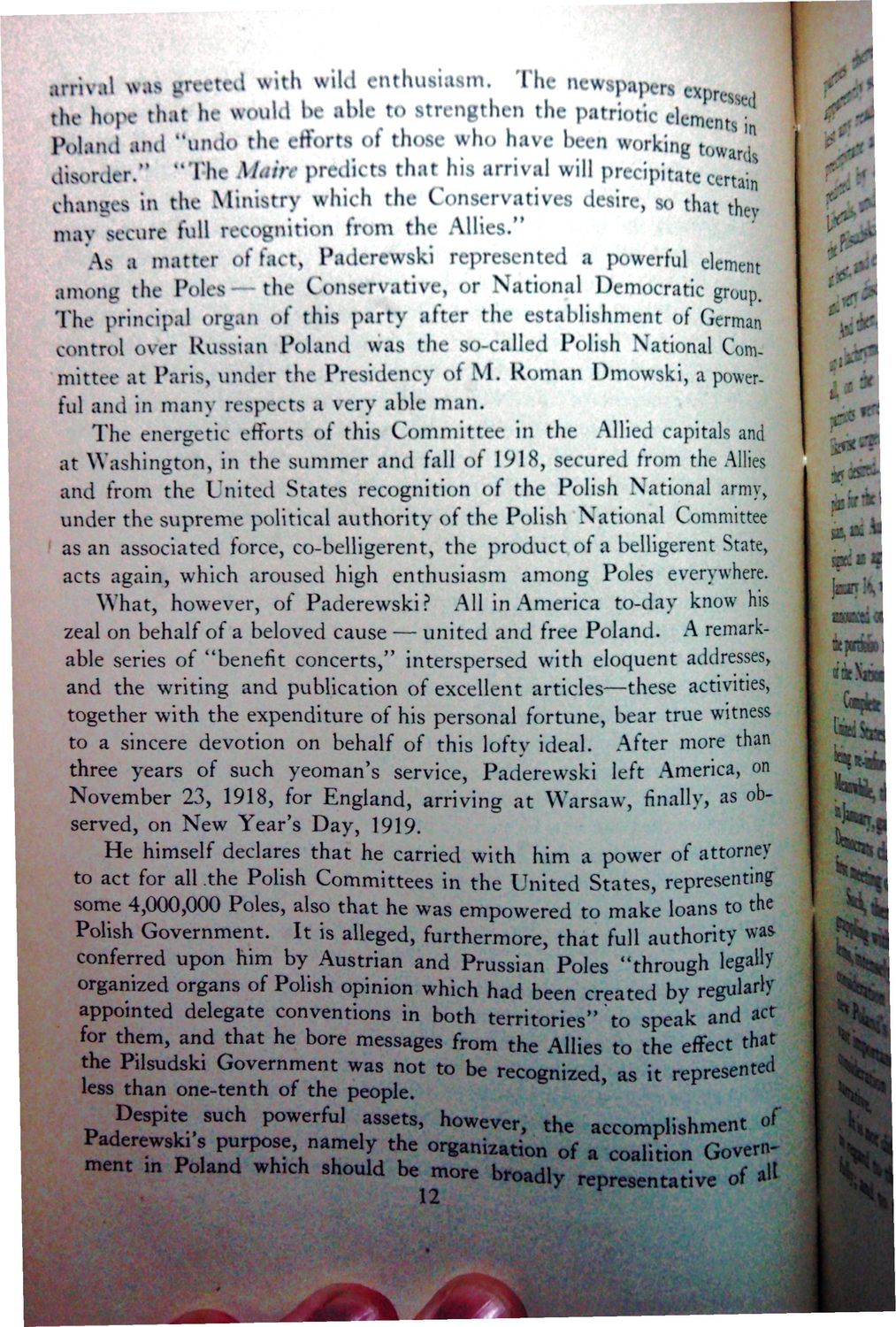| |
| |
Caption: War Publications - WWI Compilation 1923 - Article 24
This is a reduced-resolution page image for fast online browsing.

EXTRACTED TEXT FROM PAGE:
he hope that he would be able to strengthen the patriotic elements Poland and "undo the efforts of those who have been working toward disorder." "The \Lif9 predicts that his arrival will precipitate certain changes in the Ministry which the Conservatives desire, so that they may secure full recognition from the Allies." As a matter of fact, Paderewski represented a powerful element among the Poles — t h e Conservative, or National Democratic group. The principal organ of this party after the establishment of German control over Russian Poland was the so-called Polish National Com. mittec at Paris, under the Presidency of M. Roman Dmowski, a powerful and in many respects a very able man. The energetic efforts of this Committee in the Allied capitals and at Washington, in the summer and fall of 1918, secured from the Allies and from the United States recognition of the Polish National army, under the supreme political authority of the Polish National Committee f as an associated force, co-belligerent, the product of a belligerent State, acts again, which aroused high enthusiasm among Poles everywhere. What, however, of Paderewski? All in America to-day know his zeal on behalf of a beloved cause — united and free Poland. A remarkable series of "benefit concerts/' interspersed with eloquent addresses, and the writing and publication of excellent articles—these activities, together with the expenditure of his personal fortune, bear true witness to a sincere devotion on behalf of this loftv ideal. After more than three years of such yeoman's service, Paderewski left America, on November 23, 1918, for England, arriving at Warsaw, finally, as observed, on New Year's Day, 1919. He himself declares that he carried with him a power of attorney to act for all the Polish Committees in the United States, representing some 4,000,000 Poles, also that he was empowered to make loans to the Polish Government. It is alleged, furthermore, that full authority was conferred upon him by Austrian and Prussian Poles "through legally organized organs of Polish opinion which had been created by regularly appointed delegate conventions in both territories" to speak and act for them, and that he bore messages from the Allies to the effect that the Pilsudski Government was not to be recognized, as it represented less than one-tenth of the people. Despite such powerful assets, however, the accomplishment of Paderewsk, s purpose, namely the organization of a coalition Govern1 ment m Poland which should be more broadly representative of a' • • • arrival was grafted with wild enthusiasm. The newspapers expre ^SSC(| r 1Z •
| |